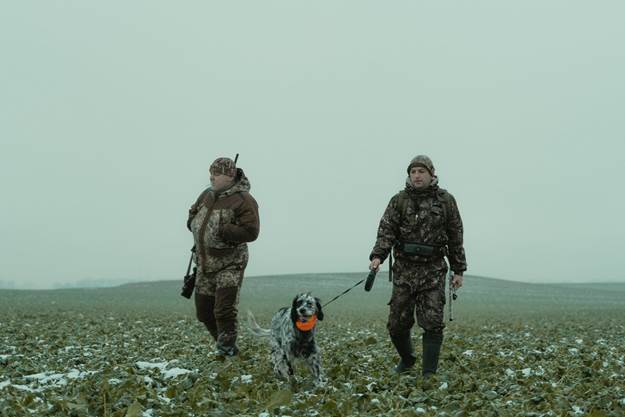Dogs are delightful partners to take along on your hunting trip. They have amazing instincts which help them guide you during the hunt. A successful hunt is just as satisfying to them as it is to you.
Many dog breeds evolved to be expert seekers and finders. However, that does not guarantee that your dog will naturally pick up hunting.
It is essential to train your dog before the quest for its own safety. Consider the following tips before taking your dog on a hunting trip.
Table of Contents
1. Consult Your Vet
Hunting trips can be long and dangerous. Both you and your dog must be physically fit to endure it. You have to travel through different terrains to find your catch.
Ask your vet to run a physical test on your dog to ensure its fitness. Their stamina is vital in keeping up with the chase. Make sure they have no visible signs of injury and a high energy level for the entire ordeal.
You do not want your dog to return from the trip with several diseases. Perform a thorough checkup to ensure that their immune system can withstand the physical demands of the hunt.
You may also ask your local breeders, such as labrador or toy poodle breeders, for expert advice.
2. Prepare a First Aid Kit
Your dog’s safety should be your priority during the trip. Minor cuts and bruises can get infected and make your pet suffer. Prepare a pet first aid kit with the following essentials.
In case of a cut, the first step is to clean the wound with fresh paper towels. Carry a roll of the tissues and disinfectant in your kit. Also, keep sting relief pads, cleansing wipes, and bandages explicitly designed to treat animals.
Pack any prescribed medications for your dog and pain relievers as a precautionary measure.
3. Pack Fresh Food and Water
To keep your dog focused on the hunt, feed them a few hours before the trip. This will ensure that they are energetic without getting motion sickness.
However, hunts can take hours and sometimes even a full day to complete. Your pet will get hungry just like you. Pack their favorite dry food to maintain their eating schedule. You should also pack their food bowl for the trip.
Hydrate your dog regularly during the hunting trip. They will most likely signal to you when they are thirsty. Give them a small amount of water at a time to avoid bloating.
It is best to carry a special dog water bottle to easily give them water when needed.
4. Monitor Their Condition Under Extreme Weather
Before taking your dog on a hunting trip, study the area’s weather. Their condition will need monitoring under extreme situations.
Winter is the best hunting season. However, if your dog remains wet in the cold weather, they might catch hypothermia.
Dress them warmly in a thick padded, waterproof winter jacket while hunting in freezing conditions. Find them a warm, shaded spot to rest during breaks.
In a scorching climate, your pet might show signs of heat exhaustion. Look out for heavy breathing, drooling, confusion, and loss of strength. Give them plenty of water on the trip and let them cool off from time to time.
5. Prepare Your Dog for Gunshots
A sudden, loud noise can surprise your dog into running off in the distance. You will have to go looking for them mid-hunt, which can be frustrating.
You can condition your dogs to gunshot noise. Run retriever drills with your dog to train him. Toss a decoy “bumper” for the dogs to retrieve while someone fires a gun, starting from 100 yards away. After every fetch, the shooter should get closer behind the dog and their handler.
This will slowly ease the dog to the noise as you give small treats after every shot. Eventually, the shooter should stand parallel to your dog for the final practice.
Your dog will ultimately get used to the loud bangs of your shooter rifle. Pick a safe gun of your choice and enjoy the hunting trip with your pal.
6. Travel With Them Safely
Use a safe mode of transportation. Do not throw them in the backseat without any protection.
Buy a carrier that is spacious for your dog. If you drive an SUV or a truck, place your dog in a crate and fit it in the back.
They must be able to move around and stand up if needed. Line the corners with safety foam to protect them from harsh bumps.
If you drive a small car and want to sit them in the front, attach a dog safety belt that goes directly into the seatbelt buckle point. This will ensure stability on bumpy roads.
Lock your windows to prevent your dog from suddenly attempting a jump and hurting themselves. Take blankets for your dog if the weather is cold, and let them come in and rest in the car.
Final Thoughts
Dogs have aided men on hunting trips for centuries. Prepare in advance to have a fun hunting trip with your favorite companion.
Take your dog to your vet to test your dog’s fitness before the trip. Pack an organized first aid kit and enough food and water for emergencies. Look out for extreme weather changes and dress your pet accordingly to avoid hypothermia or heat exhaustion.
Get them used to the loud noise of a gunshot with frequent training. You must transport your dog safely to your hunting destination.

